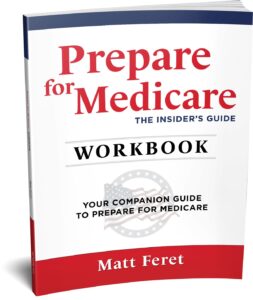Hello Matt,
Thank you for providing the information in your previous blog about Medicare Star ratings. I understand how they work, but why are they important? How are Star ratings in real-time?
Thank you for all your wonderful information!
Betty V.
Hello Betty,
The Medicare Star ratings for plans on Medicare.gov and in plan documents for Medicare insurance companies are at least a year old. That’s because the measurement periods don’t align well with how Medicare Advantage and Medicare Part D Prescription Drug Plans are deployed. The lag can be as long as three years in some situations.
How Often Does Medicare Change the Medicare Rating Rules?
Medicare changes the rules around how they score health plans every year. Think about it; there are over sixty-seven million people on Medicare. Can you really break down plan ratings across the country in only one way? Can you really break down these ratings into a neat five-star sliding scale? The obvious answer is no, and policy professionals and insurance companies quietly (and sometimes not so quietly) let Medicare know about it. Differences in geography, access to hospitals and doctors, income, and even attitudes about what it means to be healthy, meaning the results are suspect and imperfect.
What is the Difference Between Medicare Ratings and Consumer Ratings?
Here’s another problem: the difference between the Medicare star rating system and Amazon, Google, Yelp, and everyone else; the star ratings are not all based on direct consumer feedback. They’re based on how Medicare and the federal government rate the Medicare insurance company plans, with a percentage direct consumer feedback sprinkled in. Medicare Advantage plans are rated on more than forty quality and performance measures, and Medicare Part D Prescription Drug Plans are rated on up to fourteen measures.
Like most attempts to aggregate lots of information into a small rating system for easy public consumption, it’s not very clear how it affects the quality of your health insurance plan because there are so many data points Medicare monitors that don’t apply to everyone on the same Medicare insurance plan. So, yes, there’s a component of consumer feedback. Still, most rating methodology is based on medical and prescription drug data.
But, in my opinion, there are some questions asked that are downright head-scratchers. Here are some I find particularly puzzling.
In the last six months, how often did your health plan’s customer service give you the information or help you needed? Answers can Never be, Sometimes, Usually, or Always. What if you didn’t call customer service in the last six months? If you didn’t, would you answer “never”? Never, by the way, is a negative score. What if you couldn’t remember what you did six months ago? (I personally couldn’t even guess when I last called a customer service number.)
In the last six months, how often did your health plan’s customer service treat you courteously and respect? Answers can be Never, Sometimes, Usually, or Always. I don’t know about you, but my version of what’s courteous or respectful will probably be different than yours. And yours is going to be different than your neighbors’. Is that a fair way to measure Medicare insurance companies?
Have you had a flu shot since July 1?
Obviously, Medicare wants the answer to be yes (which is why they may ask). What if I don’t want to get a flu shot? What if they make me feel bad? What if I have a fear of needles? If the answer is no, it counts as a negative mark against the Medicare insurance company. Is that fair?
In the last six months, how often did you see the person you came to see within fifteen minutes of your appointment time? Answers can be Never, Sometimes, Usually, or Always. Have you ever been to the Emergency Room? Have you ever waited in your doctor’s waiting room? Have you ever waited for more than fifteen minutes? And if you had to wait, what could your health insurance company do about it? You know the answer: nothing. No matter—if you answer negatively, it’s a bad mark against the Medicare insurance plan.
Do star ratings really matter? Sure. They matter because they give an overall indication of the quality and customer experience of a given Medicare Advantage plan or Medicare Part D Prescription Drug Plan. Is there a significant difference between a three-star plan and a four-star plan from the consumer’s standpoint or experience? Probably not.
There are flaws, to be sure, and the rules insurance companies must abide by change every year. However, the real impact to you, the consumer, is that higher-performing plans are paid more by the federal government per person enrolled. Most of that additional money must be put back into benefits or lower insurance policy premiums, which, in the long run, is better for you and your wallet.
I hope this helps!
Yours,
Matt F.
Subscribe Today to My Prepare for Medicare Newsletter and Stay Up-to-Date on Medicare Changes!
My newsletter is an exclusive subscription-only newsletter that delivers the inside scoop to help you stay updated with your Social Security and Medicare insurance coverage, highlight Medicare and Social Security news you can use, and provide reminders for important dates throughout the year. Subscribe today for FREE!
Author Bio Matt Feret is the author of the Prepare for Social Security -The Insider’s Guide and the Prepare for Medicare – The Insider’s Guide book series and launched PrepareforSocialSecurity.com to help people get objective answers to questions about Social Security and Medicare. Matt is also the host of The Matt Feret Show. He has held leadership roles at numerous Fortune 500 Medicare health insurers in sales, marketing, operations, product development, and strategy for over two decades.






